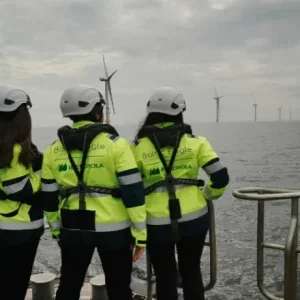MicroCglycerin has been accepted by industry professionals as a safe carbon source for the removal of nitrates in wastewater systems.
As the nation’s surface water quality continues to deteriorate, wastewater treatment facilities in the US are increasingly required to upgrade their plants for enhanced nitrogen removal. In many cases, this requires facilities to add an external carbon source as an electron donor. Historically, methanol has been used as an option; however, methanol fluctuates widely in cost, is flammable, has toxic properties, requires costly storage and feed systems, and is derived from non-renewable natural gas. Moreover, 90% of the methanol used in the US is imported.
“Our customers are very excited about the non-hazardous, environmentally-sustainable and domestically-produced features that our MicroCglycerin™ product offers versus methanol,” said Eric Stoermer, Environmental Operating president and chief executive officer.
Stoermer said that, Environmental Operating worked with US biodiesel producers to ensure that its MicroCglycerin would meet the requirements of municipal and industrial wastewater treatment facilities. Of primary importance in development of this product were the quality, consistency and reliability of the crude glycerin input materials.
Environmental Operating has qualified nine biodiesel plants in the US to supply crude glycerin for its MicroCglycerin product. These facilities represent capacity to produce the raw materials required for up to 32 million gallons of MicroCglycerin annually.
Although recent industry research and pilot efforts confirmed that crude glycerin is a viable and environmentally-sustainable carbon source for denitrification, operational issues had to be addressed to ensure widespread adoption. MicroCglycerin overcomes these challenges with a product that has consistent carbon content, negligible methanol and fatty acids, no insoluble solids, and is compatible with existing pump, storage and feed systems.
Peter Hunt, vice president of sales & marketing at Environmental Operating said that, early adopters of our MicroCglycerin product have completed pilots and achieved denitrification results. If initial results are any indication, we anticipate MicroCglycerin will complement our existing MicroC line of carbon sources. The product is currently available throughout North America.






